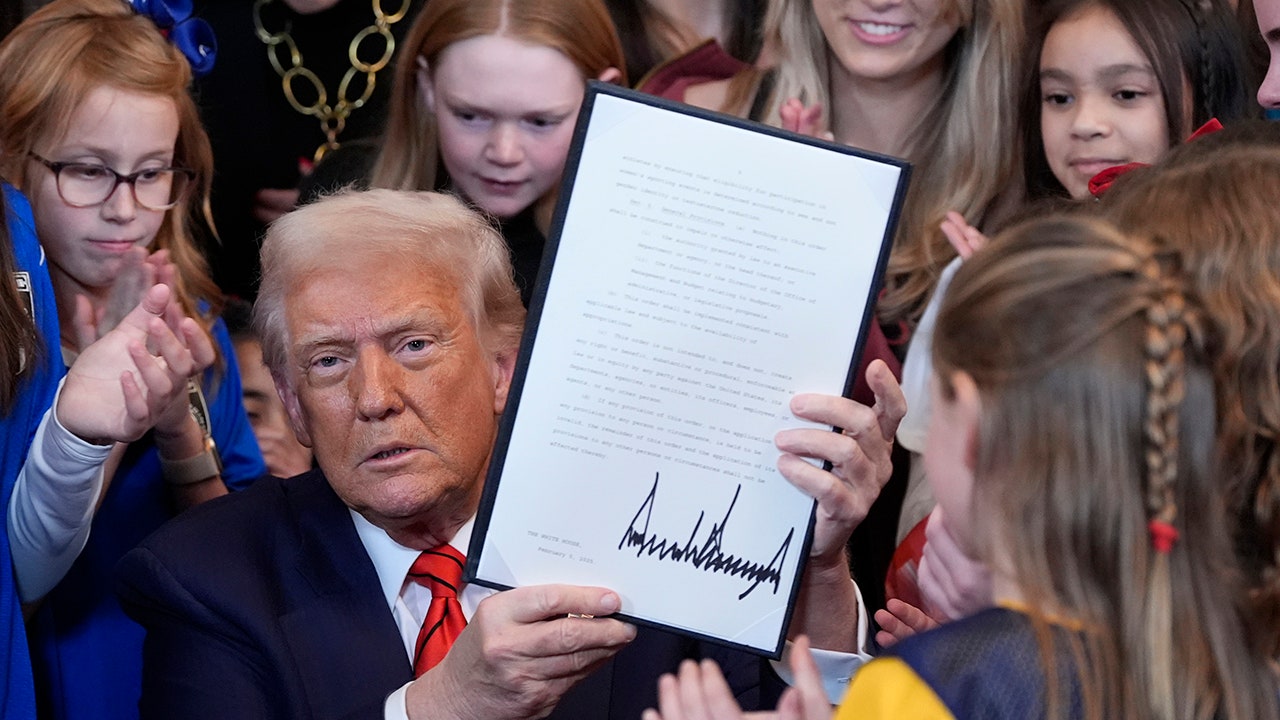Trump executive orders: Ex-college tennis star says NCAA policy is not compliant

Kim Jones, a former All-American collegiate tennis player and co-founder of the Independent Council on Women’s Sports (ICONS), had a strong message for President Donald Trump regarding the recent controversy surrounding the NCAA’s policy on transgender athletes in women’s sports. Amid criticism that the policy still has significant loopholes, Jones called on Trump to intervene and push for a complete rewrite of the policy.
After President Trump signed an executive order prohibiting biological males from competing in women’s sports, the NCAA quickly followed suit by reversing its policy on transgender inclusion in women’s sports. However, Jones, along with other critics, argued that this new policy does not go far enough in protecting women’s athletes in college sports. One of the main concerns raised was that the policy allegedly allows transgender athletes to bypass restrictions by simply changing the gender on their birth certificate.
In the United States, 44 states currently allow birth certificates to be altered to change a person’s birth sex. Only six states – Florida, Texas, Kansas, Oklahoma, Tennessee, and Montana – do not permit this change. Additionally, there are 14 states that allow sex on a birth certificate to be changed without any medical documentation required, including California, New York, Massachusetts, and Michigan.
In response to these concerns, the NCAA clarified that transgender athletes will not be allowed to compete in the women’s category based on amended birth certificates. The governing body made it clear that no waivers are available for athletes assigned male at birth, and they may not compete on a women’s team with changed birth certificates or other forms of identification.
Jones emphasized the need for two mandatory measures to be implemented by the NCAA. Firstly, she stated that membership on a women’s team should be exclusively for female student athletes. Secondly, she called for a screening mechanism to ensure that no male athletes can participate on a women’s team.
Despite President Trump’s executive order, Jones stressed that the policy is not finalized. She pointed out that the NCAA’s current policy lacks accountability, oversight, clear language limiting women’s team membership to female athletes only, and a mechanism for screening sex. The issue of transgender athletes practicing on women’s teams was also addressed, with the NCAA considering male practice players as a common feature in women’s sports.
While the specifics of the NCAA’s policy regarding transgender athletes practicing on women’s teams remain unclear, it has been reported that these athletes do not receive scholarships. The potential for an official update to address these criticisms is still uncertain.
In conclusion, Kim Jones’ call for President Trump to intervene in the NCAA’s policy on transgender athletes in women’s sports highlights the ongoing debate and controversy surrounding this issue. The need for clear guidelines, accountability, and protection of women’s athletes in college sports is essential, and the outcome of this debate will have significant implications for the future of women’s sports.




